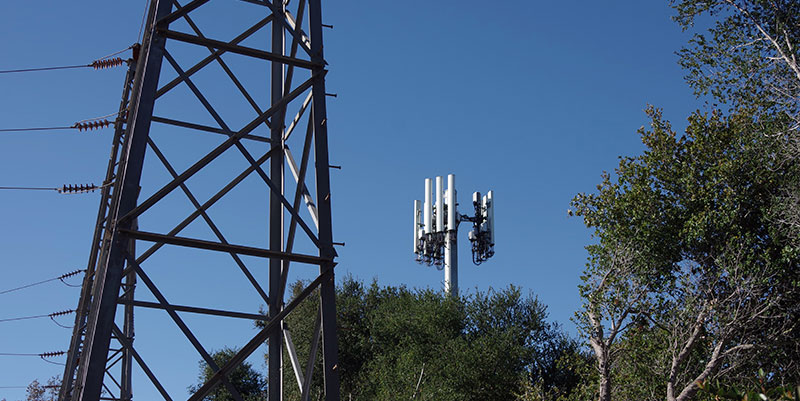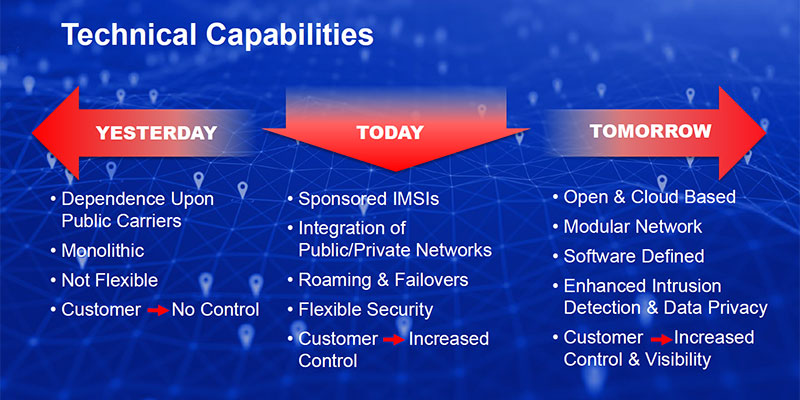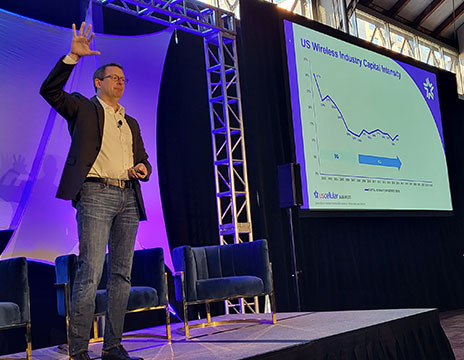How Financial Drivers and Technological Growth Have Led to Private Cellular Network Adoption by Utilities and Other Industries
Cellular Providers and Utilities Partnering to Advance Technology and Better Serve Customers
Increasingly, electrical and other utility companies are partnering with mobile network operators to implement private cellular network solutions. These create resilient and reliable connections that meet regulatory obligations and “de-risk” network deployment. To better serve their customers, utilities are telling their cellular partners that they want better security, control and, most importantly, reliability.

With the recent maturity of private cellular networks, a utility can not only partner with a cellular provider, they can also own their assets on their terms with little to no risk to them. This evolution transpired, in part, due to improvements in network technology combined with a shift in business models. The current environment now allows cellular providers to support utility industry advancements.
Financial Necessity
To demonstrate how far the industry has come, it’s helpful to put in perspective the enormous amounts of capital cellular providers have spent to connect the U.S. over the last 20 to 30 years. Private cellular network solutions are possible today due to past capital intense spending and rapid evolution of technology.
Cellular industry capital intensity (assets needed to generate income) averages 15%, but 20 years ago, it was as high as 30%, meaning the industry was spending far more capital than it earned in revenue.1 Continued capital investment and enhanced network investments like 4G led to the creation of companies like Uber and DoorDash.
Then came 5G, which posed another hurdle to capital intensity. Cellular providers had to spend significant capital without taking in additional revenue, making it a challenging investment. But once 5G was in place, the industry again began taking in more revenue, said Laurent “LT” Therivel, president and CEO of UScellular, in his keynote address at the recent Utility Broadband Alliance (UBBA) Plugfest event (view full presentation).
“Not everybody had a mobile device in the early days of cellular networks, and so we saw this future where we are going to put the towers out there, we are going to provide coverage, and more and more people are going to get this cool thing called a mobile phone and that's how we're going to recoup our investment. And it worked,” Therivel said.
With traditional mobile device use reaching a plateau, the cellular industry continues to expand to advance to work with industry. Strong cellular coverage and capacity allows for cellular partners to:
- Modify and change parameters to enable new, industry-specific applications
- Modify networks and change parameters to enable additional solutions
- Create new revenue sources from people or companies who want access to cellular networks
This growth plan has led utilities and other industries to look to private cellular networks that are tailored to their exacting needs.
Advanced Technical Capabilities
Advancements in wireless technology now allow cell providers more control over a utility customer’s network. Today, utilities can utilize sponsored IMSIs (International Mobile Subscriber Identity, the 15-digit number printed on a SIM card), which make possible true integration of public and private networks.
The 3rd Generation Partnership Project (3GPP) cellular industry standards create the possibility for private companies to fall back to the public network, when necessary, as well as providing security that can flex up and down based on a company’s needs.

With the continued expansion of 5G, industries can expect:
- An expanded standalone 5G network (SA) and core with more open interfaces
- Open networks and cloud-based networks
- Modular networks with access to individual pieces as they are needed, enabled with an Application Programming Interface (API), as opposed to having to completely redesign a network for one customer’s needs
- Far better intrusion detection, data privacy and security parameters that provide increased control, security and visibility
For example, today utility companies may be focused primarily on virtual private networks (VPN), but also may wish to implement better data security by removing the data plane but keeping the core and radio access network (RAN). Or utilities may want to take the next step and have their own core, moving beyond simply increased security to even greater levels of control. They may also want to own portions of their RAN, spectrum, towers, infrastructure and other assets in order to get a better return on those assets and better serve customers.
“Our network is now modular and open enough to where we can support utilities every step of the way without having to reengineer the way we do business,” Therivel said. “And if there’s a portion of that network or services that you don't want to manage and maintain yourself, we also have a managed services group that can help you with that.”
Bridging the Digital Divide to Connect Customers
Connecting people to what matters most is personal and important. For example, your customers depend on backup power to keep them cool on a hot Texas day, or warmer in rural Illinois winters. And to them, reliable power—or internet or other services—is personal to them. It is not just an economic or technical exercise.
Utility delivery, connectivity and other services matter to customers, and partnerships between utilities and cellular providers have an opportunity to focus on the people for whom it matters, rather than just dollars and cents.
WHY UScellular® FOR UTILITIES
Monitor and manage your energy and utility assets with solutions powered by UScellular, and backed by nationwide 5G network coverage that provides an uninterrupted experience in both urban and rural areas. UScellular business solution partners help you make strategic, operational and cost-saving improvements. Speak with your UScellular Business solutions partner to develop a smart grid plan and build a blueprint for making an informed decision that reduces costs and streamlines operations.
Learn more about UScellular for Utilities or contact your local Utilities account representative at 866-616-5587.







